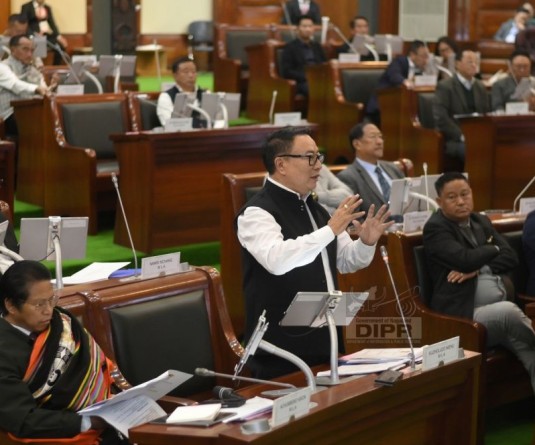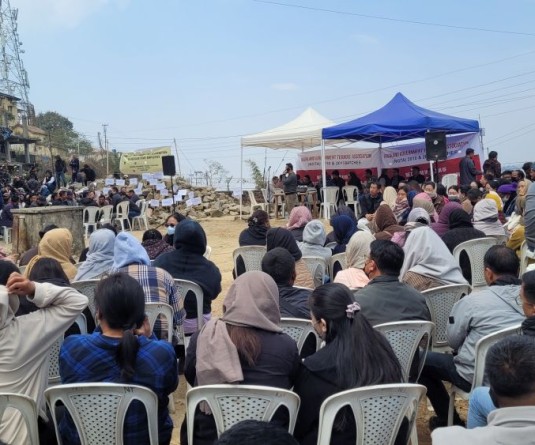
Morung Express News
Dimapur | January 12
Corruption is the new way of life in Nagaland. Lawyer Joshua Sheqi feels that this has happened as the morality needed towards society has been lost to an “individual sense of morality.” For Sheqi, those most benefitted by the system, the “educated lot,” must “chastise” themselves for this.
A system consists of the structure that frames it, and the agency, or the individual, who makes the structure work. Sometimes the structure itself is flawed, sometimes individual action bends the frame of the structure—both contribute to corrupting a system. In Nagaland, there exists a system that people do not completely understand, keeping it open to manipulation.
“In the olden days, there was stringent law and order that everybody understood. Justice was done,” explains entrepreneur Abokali Jimomi. She goes back to the root, or the structure, itself. Justice can be done when a society has an idea of the common future. With sudden onslaught of modern systems, this direction has been lost. “For decades now, Nagas have lived in a system that has degraded our social values, and sadly, we have now come to believe in it. Greed has blinded us. We have become irresponsible towards our own land and people—corruption has deprived us of our rights,” says social worker Chanthungo Murry.
While for peace activist Gwangphun Gangmei, “rooting Christianity well” and following “Christian values” could be a way out, Jimomi thinks that people have been taken down the dark alley for so long that one had “rather secure their family over being a good Christian.” People are being rapidly pushed towards poverty and in the lack of working systems, a “mutually beneficial” manipulation at least secures a life for however brief a period. It could explain Sheqi’s belief why “corruption is the new way of life.” A cycle of brief securities and endless wants can entrench themselves as modern cultures, as witnessed by many a developing nation.
Jimomi admits that there is no clear way to move out of this deadlock of corruption but “more social analysts need to guide society through this phase.” It is to be supported by education that not only guides young people through modern systems but also “instills human values, including respect for human beings and the environment,” says Jimomi.
This could even lead towards the other rung that needs a push: individual action. “At the end of the day, structural changes need to be navigated by changed individuals,” maintains Entrepreneurs Associates’ Neichute Doulo; “that is when we shall have a new Corruption Free Nagaland.”
As one of the methods of this change, both Doulo and Sheqi suggest, “it is time to levy income tax on Nagaland.” This will bring a “systemic approach” to tackling corruption, for Sheqi, while also instilling the “dignity of labour” in a holistic manner—structure and agency with one stone: tax. According to Doulo, “it will bring a sense of accountability.”
As the Indo-Naga political negotiations move on, with both parties taxing the people for myriad services of governance or peace talks, neither have yet found an answer to who will legitimately, and finally, levy tax on the Naga people. While this may seem too high a level to base discussions around corruption on, it might be one among the many roots of the corruption tree.






